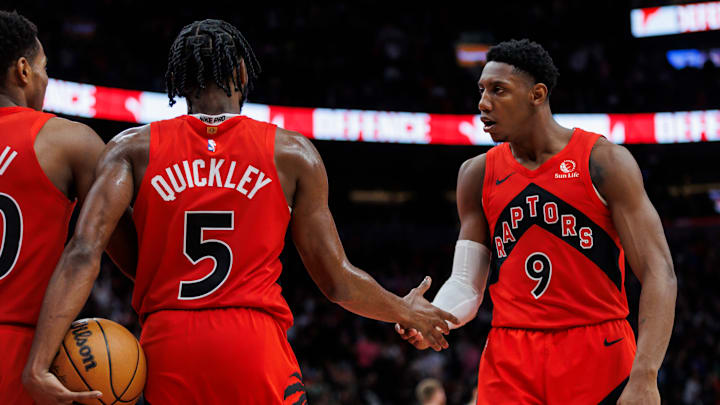Although Masai Ujiri has long been considered one of the better executives in the league, his track record has come into question in recent months. Losing Fred VanVleet for nothing doesn't help, and holding onto O.G. Anunoby and Pascal Siakam for too long doesn't help either.
And trading a highly-coveted first-round pick for Jakob Poeltl, a non-star, only to shell out $80 million for said player afterwards, makes matters worse. Ujiri and the Raps' front office also had a snoozer at the trade deadline, as their moves left many scratching their heads.
Ujiri acquired R.J. Barrett and Immanuel Quickley, in addition to Ochai Agbaji at the deadline, not to mention Kelly Olynyk, who the team later extended.
But was this the best way to move?
Well, considering that the team didn't fully restock the team's draft capital, one could easily say no.
The team's mindset was clearly to focus on young talent, as opposed to draft picks. Generally, teams do the opposite.
It buys you more time, because you can trade picks for later picks. Or you can trade picks for superstars, when they become disgruntled and want out.
Which is what Sam Presti has been doing.
Adding young players is a major risk, because what happens if those players don't morph into superstars?
There's an easy answer here. The team will immediately be stuck in the shackles of mediocrity.
The Raptors' roster will then be comprised of Scottie Barnes and essentially a bunch of mid-tier players.
Which isn't exactly a formula for success, even in the Eastern Conference, unless you view Barnes as a top-ten player.
(Which he isn't).
Neither is Quickley, Barrett, or Agbaji. Otherwise, they wouldn't have been moved for non-star level players.
And we know Olynyk isn't a star.
For a team undergoing a soft rebuild, choosing players over picks is a dangerous way to operate. Especially when none of those players are franchise cornerstones.
But maybe it'll work out. We'll have to wait and see.
